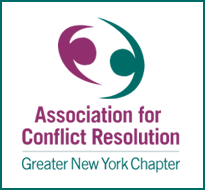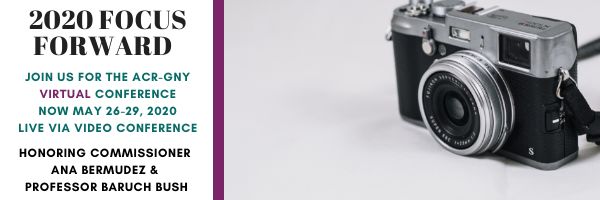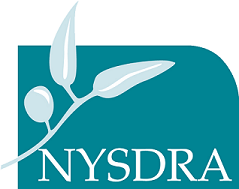|
CONFERENCE AGENDA
Conference Tracks:
Generously Sponsored By:
_____________________________________________ DAY 1: Tuesday, May 26 9:00 AM: Theory and Praxis Redefined: Field Guide to Social Transformation Beth Fisher-Yoshida, Joan Camilo Lopez In this session we explore the participatory approach we developed working in conflict-ridden contexts, finding sustainable solutions, putting in motion innovative processes of social transformation. It is grounded in 5+ years of working in the field in Medellín, Colombia, with youth and community leaders where conflict is deeply rooted. It is informed by: 1) Social change practitioners drawing upon what they know and need at the time of intervention, using an eclectic approach, not knowing the theoretical roots, nor having sound monitoring and evaluation methods to document reasons why their interventions succeed or fail; 2) The less eclectic and more narrowly defined scope used by researchers because that is what is called for in the laboratory, but often is developed separately from local knowledge; and 3) Local grassroots leaders who understand the nuances of their lived experiences in their communities, relying on what they know, yet seek more knowledge and tools of their trade, without access to developments taking place in the academy. Our approach draws from these three premises and suggests a multiparty, interdisciplinary and practical approach to developing best practices in the field, engaging in meaningful fieldwork and using applied research. 11:00 AM: Teaching programs for prisoners based on mediation techniques and circle practices Richard Brewster, Professor Lela P. Love The program will cover takeaways from the presenters' teaching experience at state correctional facilities, using mediation-based methods and circle processes to teach inmates, many of whom are nearing their release dates, negotiating, communication and listening skills valuable in the prison environment and following release. 1:00 PM: Effective Dispute Resolution Advocacy: Skills, Strategies, and Techniques Stephanie Chow This session offers strategies and advice on how to navigate direct negotiations. Managing negotiations starts with understanding the forces that perpetuate and exacerbate conflicts. We offer guidance on how to manage issues before they deteriorate into expensive distractions or become missed opportunities. We now know that we have the ability to respond to conflicts more effectively, the only question is whether we will accept the responsibility to do so.3:00 PM: Mediating the Emotions in the Emojis: text-based mediation Nicholas Schmitt, Samantha Adler Join us as we explain how the new Online Dispute Resolution program is working in New York City for Small Claims cases. Explore some of the challenges of mediating solely through text-based communication, how those challenges conflict with our values as mediators, and some tips for how we have tried to overcome those challenges. 4:30 PM: Interview with award honoree Robert Baruch Bush, author, The Promise of Mediation. DAY 2: Wednesday, May 27 9:00 AM: “Social Media-tors! A Creative Response to Cyber-bullying” Tara Fishler, Priscilla Prutzman, Tricia Jones Were you on social media today? Did you see anything mean? Where there is social media, there is often cyber-bullying, which is at epidemic levels among both youth and adults. “Social Media-tors!” may be an answer! Creative Response to Conflict and Bridg-It have partnered to develop the “Social Media-tor’s” program, through an ACR-JAMS grant. Learn how we are training peer mediators to safely intervene in social media conflicts. Watch Bridg-It’s app in action to see how it’s “shout-out” system, tracking system and resource center are changing school culture from negative to positive. Fostering pro-social behavior through Social and Emotional Learning and Restorative Practices are tools that are improving school climates. The techniques are not just for kids. In this session, YOU will gain tools to help address negative interactions you see on line. 11:00 AM: Peace and Conflict: A Review of Literature Kamiya Kumar Young people tend to witness and experience the ubiquitous nature of conflicts. Exposed to factors such as political-societal beliefs shaped by a culture of conflict (Bar-Tal & Rosen, 2009) or modern media (Duckworth, Allen & Williams, 2012), aggression can become a dominant force in their social and lived realities (Bandura, 1977). Recognizing that in today’s interconnected world conflict is an unavoidable part of social relations, the response to conflict can be either constructive or destructive (Deutsch, 1993). With violence being one of the many possible responses to conflict, the role of school curriculum is being prioritized to nurture non-violent conflict resolution skills in students (National Curriculum Framework, 2005). In schools, conflict can take a destructive form of violence and bullying often instigated by prejudices towards anyone who is different (Duckworth et al). Acts of bullying can entail direct violence committed by an actor or take the form of indirect violence reflecting the larger structural inequalities that have been normalized (Brantmeier, 2007). The experiences and voices of young people, understanding how they interact and make meaning of their lived realities is critical in moving from merely the absence of violence to the presence of positive peace. I thus sought to examine research on (1.) How are school curriculums engaging with constructs of peace and conflict? (2.) How are student voices being integrated in peace education curriculum? and (3.) How are high school students interacting with the school curriculum? 1:00 PM: Reflections on Mediation & Meditation Bradley Roth Access session materials here Join this presentation on and interactive discussion about the nexus between the practices of mediation and meditation. Bradley Roth will provide an overview of the course he teaches at The John Jay College of Criminal Justice, "Mediation and Meditation," which focuses on the theory and practice of mediation and explores how meditation can enhance one’s capacity to resolve inner and outer conflict. This session will also highlight examples of mediators utilizing meditative practices in their work. Following a brief guided mindfulness meditation, we will then break out into groups and join together in facilitated discussions regarding the relationship between meditation and mediation. After reconvening to share our conclusions, we will conclude by discussing the potential pedagogical implications of what we have learned. 3:00 PM: Building a Restorative Culture within an Organization Morgan Evans, Claire Hortens All organizations are faced with a choice in how to respond when something harmful happens. Employing restorative practices (such as circles, mediation or retrospectives) can transform the harm into an opportunity for growth and learning. True to the name, these restorative practices can actually leave an organization stronger and more connected than it was before. We need a better method than traditional HR for handling conflict, hard communication and feedback in the workplace. In the evolving landscape of the way we work these days, it is worth exploring how restorative principles can be applied to workplace issues. A truly restorative culture shows up deep in the DNA of an organization, as well as in day-to-day interactions. It requires organization-wide support as well as genuine individual commitment – the kind of buy-in that shows up in individual interactions, behind closed doors at all levels of the organization. It is a mindset, brought to life with a set of practices that initially look like one-off’s, but mature into traditions. The principles of restorative justice can be applied within an organization to create space for genuine connection and valuable learning and between colleagues, teams, and partners. What can organizations do to set up systems and practices that foster a restorative culture? In this session we explore restorative facilitation techniques and discuss how they can be transferred across domains, from progressive contexts into traditional organizations In addition to sharing an overview of facilitation methodology, the aim of this workshop is to start a conversation about how we, in the conflict resolution community, can support each other as we endeavor to to translate our work beyond our worlds and to other types of organizations. 4:30 PM: Interview with award honoree, Ana Bermudez, Commissioner, New York City Department of Probation DAY 3: Thursday, May 28 9:00 AM: You Cannot Pour from an Empty Glass: Strategic + Sustainable Self-Care Lauren Fishel Access session materials here Self-care has become a highly commodified and marketed as "buy this and that" to "treat yourself." There is a greater need for a deeper understanding of strategic and sustainable self-care. This kind of self-care examines your emotional well-being by taking an inventory of stressors and examining what is actionable. It's thinking about what short-term care vs. long-term care looks like and how we are tending to our emotional selves. As practitioners and professionals in the conflict field, it's critical for us to take care of ourselves. Our work is deeply interpersonal and if we are not tending to our emotional well-being we risk not showing up as the best professionals we can be. Understanding and taking care of our emotional self allows us to better manage our emotions as practitioners as well as help us recover from the emotional labor of our work. We cannot pour from an empty glass, but instead must be strategic about creating authentic and sustainable self-care. 11:00 AM: PADR and Your Family Law Practice: A 2020 View Ailie L. Silbert, Esq., Danielle Shalov. 2020 ushers in a new era for mediation, as the New York Unified Courts launch the Presumptive Alternative Dispute Resolution Initiative (PADR), offering more opportunities for parties and practitioners. How will this affect mediators and advocates, particularly in the family law realm? What else needs to be considered as virtual meetings become more prevalent in the wake of Covid-19? This timely lecture will discuss “Best Practices” and key "Dos and Don'ts" for mediators and advocates, including tips on how to make the most of Online Dispute Resolution (ODR) in light of PADR. 1:00 PM: Cultivating Cohesion: A strengths-based approach to multifaceted, multiparty conflict resolution Sethu Nair, The Hon. Raymond E. Kramer, Halley B. Anolik, Esq., Eric Shanks, Jessica Baen Cohesion is the mutual attraction that holds members of a group together. Cohesive groups have the resilience to manage reactions, have positive affect, and have the intelligence to respond in ways that prioritize relationships. This interactive presentation will provide a window into the Center for Creative Conflict Resolution’s innovative and versatile approach to working with teams, departments and agencies throughout New York City government. The Center’s goal is to support the capacity of city employees to develop constructive, interest-based responses to conflict. Our work is premised on the idea that individuals in restorative environments will choose to self-regulate, be open to learning and growth, and respond in conflict competent ways that serve individual and collective goals. In the context of the Center’s work, good workplace relationships mean improved public service. Center practitioners utilize a thorough assessment process to custom-design a dynamic sequence of services and interventions that include conflict coaching, mediation, group facilitation, restorative circle process, training, and change management consultations. Presenters will reflect on best practices and lessons learned over the Center’s 3-year evolution. Participants will have the opportunity to experience our methods first-hand and are invited to come with examples of their own group conflict management challenges. 3:00 PM: Early Dispute Resolution: Slashing the time and cost to resolve disputes Peter Silverman, Harold Coleman, Jeff Zaino NY CLE Credit Pending: 1.0 hours Within the first twenty minutes of hearing about a dispute and a preliminary call to the other side, most advocates know roughly where a dispute should, and will, settle. Most neutrals feel the same way. So why don't most matters resolve in a few weeks? We could all rattle off a few reasons: fear of appearing a pushover; need for discovery; greed of advocates who make money on stretching out disputes; in-house inertia and CYA of the actors involved. All of these can be addressed and disposed of. What's needed is a commonly-understood protocol, similar to collaborative law, with defined, higher, ethical standards, common terminology, and a rigorous, stepped process. This seminar will address the perceived roadblocks to early resolution of disputes, and explain the protocols for making the process work. DAY 4: Friday, May 29 9:00 AM: A snapshot of Presumptive ADR: What is it and what makes it tick? Lauren Jones, Michele Kern-Rappy, Esq., Joan Levenson, Esq., Lisa Denig, Esq., Miles Vigilante, Esq., Lisa Courtney, Esq., Jean Norton NY CLE Credit Pending: 1.0 hours It's 2020 and Presumptive ADR has arrived in New York. Join this panel of experienced court mediators who will discuss what presumptive ADR is, how it came about, what it means for litigants, how to join court rosters of selected mediators, and how to succeed in court directed mediation - as a practitioner and mediator. While mediation skills naturally are transferable across disciplines, this panel will focus on the tools needed to increase the likelihood of success specifically for those cases that find themselves before a mediator as a direct result of the presumptive ADR program. Attendees will learn about skills such as rapport , confidence and trust and, preparation for a mediation and ways to overcome common roadblocks that can stymy settlement. As we look ahead to the new decade, this panel is poised to prepare litigants and mediators for the new frontier of presumptive ADR within New York's civil courts. 11:00 AM: Co-Mediating: Why? When? How? Nancy Kramer, Robyn Weinstein NY CLE Credit Pending: 1.0 hours Co-mediating is a useful option for certain cases and one which is under-utilized. It is not even considered by many mediators, including experienced ones. If used appropriately, thoughtfully and with good preparation, it is an excellent additional tool for the kit we all rely on. This presentation will explore the pros and cons of co-mediating. It will explore how best to decide which cases are appropriate; how to choose co-mediators and how to make the collaboration work. Robyn Weinstein who manages all ADR programs for the United States Eastern District.Court will join Ms. Kramer and discuss her use of co-mediation as a training for new mediators. Q & A will be included. 1:00 PM: Peace Education China/Myanmar Perspectives Rosie Chawla This session will discuss design of conflict resolution and peace education in both closed countries and post conflict societies. There are many variables in launching conflict resolution education programs and initiatives outside United States. Partners and platforms become highly important and regular academic structures face great influences from political actors in shaping and contextualizing peace and conflict resolution education according to education agenda. How to locate collaborative actors and platforms is a much needed discussion in Conflict Resolution training? Involving private sector and public sector from my experiences in China seem to have advanced conflict resolution initiatives and influenced civil society into becoming more inclusive towards minorities who do not have equal rights and status in China. 3:00 PM: A Brand New Narrative: Social Attitudes Towards Conflict Resolution and Inefficiency in Marketing and Branding Emily Skinner This session is derived from the presenters Ph.D. dissertation research on examining the relationship between the high social need for conflict resolution and low social demand. Emily interviewed 30 millennials and 9 conflict resolution practitioners to evaluate language and social engagement and connection with marketing and branding of conflict resolution. The interviews painted a landscape of valleys of potential and uncharted territory of points of connection between the field and potential target markets. The research serves as an important tool for practitioners in evaluating their current practices and supporting strategic design of new practices by outlining gaps in language and understanding, reactions to imagery and colors, and provides list of outlined desires from a target market of their wants and needs of conflict resolution. The research supports a shift in thinking and branding of conflict resolution as a practice to conflict resolution as a lifestyle and outlines Unique Selling Points from a marketing analysis. This session will present the findings from the research. VIEW PRESENTER BIOS HERE |


.jpg)



